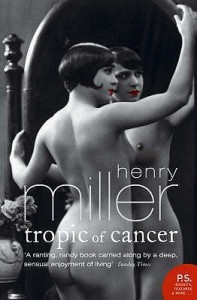 Title: The Echo (Goodreads)
Title: The Echo (Goodreads)
Author: James Smythe
Series: The Anomaly Quartet #2
Published: Harper Voyager, 28-01-2014
Pages: 320
Genres: Literary Fiction, Science Fiction
My Copy: ARC from Edelweiss
Buy: Amazon, Book Depository, Kindle (or visit your local Indie bookstore)
Twenty years after the Ishiguro vanished, two brilliant scientists have been asked to help answer the many questions surrounding this disappearance. Identical twins Tomas and Mirakel Hyvönen have been interested in space travel since children. Not space, just the equipment. Can that find the Ishiguro, will they solve the mystery or will this just lead to more questions.
This is the sequel to The Explorer, so it is going to be hard reviewing this book without giving anything away. Already I might have said too much about the first book but I highly recommend reading The Explorer anyway. This series is off to a fantastic start and I’m already eager for the next book, which unfortunately may not be till next year.
If you have never read James Smythe before, I recommend him highly. His books The Explorer and The Machine book made my top books of 2013; that is a rare and incredible feat since I had so many books to pick from. Smythe writes literary science fiction that not only keeps you on the edge of your seat; they will also get you contemplating humanity.
The Echo has that philosophical and bleak style you come to expect from James Smythe. While this book sounded like there weren’t any thrilling moments, I was wrong; I was addicted to this book as much as The Explorer and it kept me up late at night. I love the way this author looks at life and sanity; there is so much he wants to say and I’m beginning to wonder if the planned four books series is enough.
I really want to say more about this novel but I’m afraid anything I do say will be a spoiler. I hate leaving a review so short but I highly recommend this series and that is all I can really tell you. James Smythe has another book coming out this year, so I have something to look forward to. I’m sure The Testimony will also be read during the course of 2014 as well.

 Title: The Explorer (
Title: The Explorer ( Title: The Bell Jar (
Title: The Bell Jar ( Title: Boy Meets Boy (
Title: Boy Meets Boy ( Title: The Hot Kid (
Title: The Hot Kid ( Title: The Machine (
Title: The Machine ( Title: Tropic of Cancer (
Title: Tropic of Cancer ( Title: The Amazing Adventures of Kavalier & Clay (
Title: The Amazing Adventures of Kavalier & Clay ( Title: The Shining Girls (
Title: The Shining Girls ( Title: Fetish (
Title: Fetish (